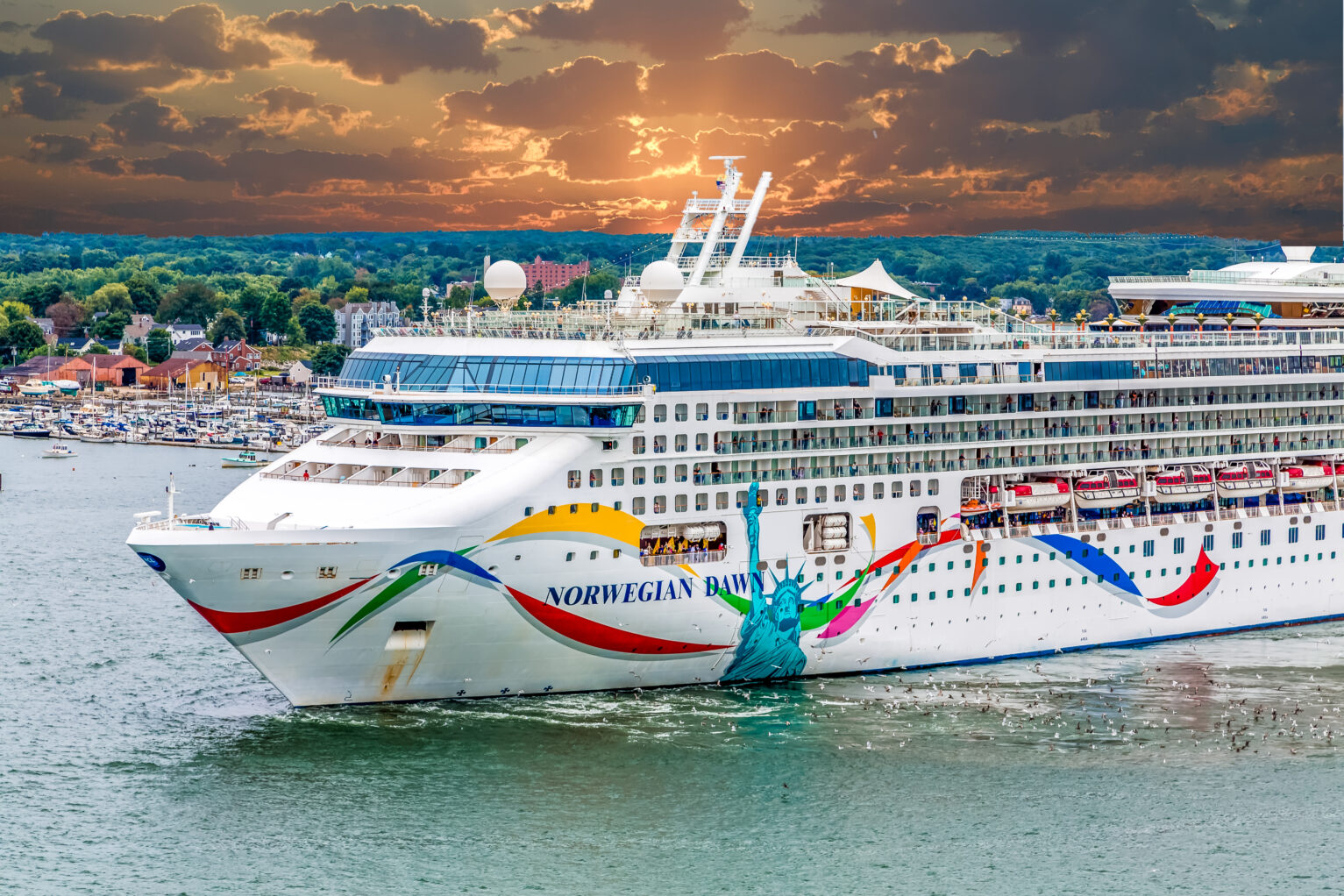Cruising is the perfect form of travel for older travellers. It’s easily accessible, you can unpack just once, and cruise ships always have activities ready for older travellers.
However, getting insurance that has good coverage and doesn’t break the bank is no mean feat for older travellers.
Insurance premiums creep up with age, and some insurers even set age caps. Adding pre-existing conditions to the mix only complicates things further, often greatly inflating the cost.
This has created a scenario where many senior cruise travellers can even find themselves priced out of their preferred holiday, with some cruisers even reporting that insurance premiums can be as high as the cruise fare itself.
Many of Cruise Passenger’s older readers have shared stories about how highly priced their insurance is and how difficult it is to enjoy their favourite holiday.
Cruise Passenger reader Sally wrote: “I had to cancel a cruise this year because the cost of insurance for my elderly mother was prohibitive.”
Another reader Jenny, wrote: “It’s now more expensive than two economy airfares from Australia to Europe for a couple in their 70s with no health issues.”
For those like another cruiser, Sandra, pre-existing conditions can hugely inflate the price of insurance. “The cost is certainly getting prohibitive and not just for older travellers. I was only 64, but had a one-off medical episode, which was treated and is now over. But in the interest of honesty and transparency, I declared it, and was slugged an extra $2500. I had no choice but to pay, as I already had multiple bookings in place”
Sarah Orr insurance expert at Compare the Market, said: “Just like comfy travel pants, there’s no one-size-fits-all insurance policy for everyone! We recommend comparing a few different options to look for one that meets your needs and budget.
“Some insurers stop coverage at 75, others will cover you up to 99. Some will cover you for certain pre-existing conditions if you declare them, and others won’t. In some cases, you might need to pay an extra premium for that cover, to account for the extra risk.”
To help older cruisers navigate the minefield of insurance, this guide points out some of the best policies available as judged by experts, offers some tips on keeping costs down and outlines what you should make sure you consider when choosing an insurance policy as a senior traveller.
While insurance is necessary, and it is an inevitability that it will be a bit pricier for older cruisers and those with pre-existing conditions, you still need to ensure you get good coverage. There are ways to keep costs down and continue enjoying cruise holidays.

How much should you expect to pay?
How much should you expect to pay when picking your cruise insurance as an older traveller? It will greatly depend on a range of factors, such as where you’re travelling, for how long, your age, any pre-existing conditions, and even other factors, such as the time of year you travel and whether the insurance provider is running any promotions or sales.
Angus Kidman, Insurance Expert at Finder makes the point that prices will also vary considerably. “The cost of cruise travel insurance for seniors varies a lot depending on your age, destination, and health.
“As an example, a week-long cruise to New Zealand for a 65-year-old can range from $100 to $600. That’s partly due to different inclusions, but not always, so pick a couple of policies and look at the fine print carefully.
“More basic cruise cover can start from around $8.43 per day, but the price will rise if you have pre-existing conditions or want comprehensive cover.”
However, Kidman stresses that price is no reason to reconsider getting coverage.
“The important thing is to focus on what’s included, such as medical care, evacuation, and cancellation, because those are the areas where costs can skyrocket if something goes wrong.
“It might feel expensive up front, but compare that to real-life cases where travellers have faced bills in the tens of thousands of dollars without cover. Insurance is about protecting your holiday and your financial security.”
From the price comparison below, you can see that for a two-week cruise, for two cruisers of 75 years old, sailing to the South Pacific, you can expect an average of about $500 total. This is quite a reasonable cost, but there are many factors that can quickly inflate this cost.
Expect to pay more if
- If you’re in your 80s or 90s, you might find yourself charged quite a bit more than someone in their 70s. Prices can increase exponentially with age.
- You sail to, or out of, any USA ports. Any travel to the USA and you can expect your insurance premium to cost about double what it would for sailing to New Zealand or the South Pacific. Travel to Europe will also run up a more costly bill, but not quite as steep as the USA.
- If you have any re-existing conditions, these will always run up your bill, but depending on what they are, they could add $1000s to your premium, particularly for heart-related conditions.
- If you are travelling for a longer period of time. If you’re looking to cruise for a longer amount of time, such as a circumnavigation of a month or more, or a world cruise, you can expect to pay significantly more.
- If you are visiting a lot of countries. If you are cruising to lots of different locations or combining your cruise with travel where you will visit a larger range of countries, you can expect the premiums to run higher.
Price comparison
Cruise Passenger ran a price comparison of 10 different insurance providers. The criteria were for two 75-year-old cruisers, sailing on a two-week South Pacific cruise out of Australia.
A key point to note is that each policy has different inclusions and exclusions. Price shouldn’t be the only thing you consider, and different policies may adjust their policies differently according to pre-existing conditions or advanced age.
However, as far as base prices go, here’s the guide to 10 of Australia’s primary travel insurance providers. The prices are the total cost for the two travellers.
- 1Cover $649.50
- Medibank $1323 for comprehensive insurance, or $552 for medical only coverage. There are discounts for members.
- Travel Budget Direct $611.70
- Fast Cover $603
- Insurance and Go, have a cruise bare essentials package for just $235, or the Cruise Silver package for $1087
- Southern Cross travel insurance $416
- Allianz $528
- Bupa $414
- Go Insurance $1210
- Cover More $624
As can be seen from the pricers, there can be huge disparities in premiums, depending on individual circumstances. In this instance, prices can go anywhere between $235 and $1323 for the same cruise.
This highlights the importance of shopping around for different insurance policies, rather than just accepting the first price that you’re quoted.

How to save on travel insurance as a senior
- Shop around and consider multiple options: As stressed above, it’s important to check prices and policies across multiple insurers. Orr says, “Premiums usually increase as you age, as there is a higher likelihood you might need to claim. But remember, different insurers assess risk differently, so if you’re not happy with the first quote you see, run a few more to look for better value. Comparison websites make it easy to compare a number of brands side-by-side.”
- Consider a multi-trip policy: If you’re planning on travelling more than once a year, you might find you get better value from a multi-trip policy. Cruise Agent Richard Davey says, “I often suggest to my senior clients that they consider an annual multi-trip policy. The insurer I normally use allows as many trips as they like over 365 days, provided that none of them exceed 45 days. In many cases, this policy costs less than a single-trip policy.” These policies may not always be available to older travellers.
- Consider raising your excess: Orr says, “There are a few other ways to reduce your premium. If you can afford to pay more in the event you need to claim, then setting a higher excess could help keep your cover cost low.”
- Remove some inclusion from your cover: As seen in the price comparison, while it can maybe be risky, you can opt for lower cover plans. This might mean you have less cover in the event of possible cancellations, or for lost or damaged items and so on, but will still include medical cover, which carries the highest potential cost if something were to go wrong. Orr says: “Choosing lower claim limits for lost or damaged items could be a good option, especially if you’re packing light and leaving valuable items at home. Take some time to think about what options best suit your needs and financial situation.”
- Travel close to home: If insurance premiums are becoming a serious barrier to your international travel, remember that in a domestic cruise, or a cruise to New Zealand or the South Pacific, you can find significantly lower premiums than those for cruisers out of Europe or the USA.
- Consult a travel agent: Not only can travel agents help you with price comparisons, but they often can work out discounts for you or package your insurance with your cruise. Sometimes they can even get around age caps.
- Buy insurance as a group: Insurance providers often offer cheaper premiums when policies are booked together. If you are travelling with family or a large travel party, make sure to book all your travel insurance policies together, and you’ll generally receive a discount.
- Make sure to check any coverage you might already have: For example, through your credit card or health insurance. You may already be entitled to travel insurance, and you can check if it covers cruise, or if it works out cheaper to add cruise to your existing cover, rather than purchasing a new policy completely.
Who are the best providers?
- Michelle Levins, director of My Cruise Concierge, recommends three providers in particular for older travellers. These are Go Insurance, NIB and Cover-More. She reports older clients being satisfied with these policies.
- Price-wise, based on the Cruise Passenger comparison, for less comprehensive cover, the Insure and Go ‘Cruise Bare Essentials Cover’ is the cheapest option. Bupa and Southern Cross also offer great economic options.
- Most major insurers will insure passengers at least up to 100 years old, and sometimes even older. Some insurers, such as Go Insurance, have a limit of 75 years, or 85 years for those who book through travel agents.
- Cruise Passenger recommends Cover-More, Southern Cross Travel Insurance, Insure and Go and Allianz Insurance, as providers that readers consistently rate highly and report good experiences with. However, the most important step will always be comparing providers and picking the best for your individual circumstances.
- Older travellers often have more unique circumstances, which makes it harder to declare universally what the best policies are. Run your own comparisons and speak to an agent to be sure you’re getting the best deal for yourself.
What else to consider
- Always remember that Medicare will NOT cover you on a cruise ship, even if you’re cruising domestically.
- You should purchase your insurance as soon as you start putting down non-refundable deposits for your trip.
- Always remember to read the fine print of your insurance and ensure you’ll be covered.
- Make sure you always declare pre-existing conditions. This generally considers any official diagnosis you’ve had or anything you are already taking medicine for or receiving treatment for. If something goes wrong and a pre-existing condition isn’t declared, you might be denied your claim, even if it doesn’t directly relate to the pre-existing condition.
- You can check here for more in-depth details on different insurers’ policies. Medical cover and cancellation cover are always the most important policies to check that you have, and cruise-specific policies such as cabin confinement and pre-paid shore excursion cancellation are also worth checking for.









Interesting that in your story it was stated to declare pre existing conditions as your policy might be denied if you make a claim even if not related to your condition. Booked cruise for late 2023 when cruising recommenced after Covid stating psoriatic arthritis as pre existing condition and was denied coverage for a 12 day cruise to the noumea, mystery island etc. plus it is stated to take insurance as soon as you do booking but cannot do if more than 12 months in the future or am I missing something here
I shop around and have never had any issues with RACQ Travel insurance. They even paid out on covid claims from the start of it all. They also have member discounts which makes the price quite reasonable.
On my next trip both flights and cruising, coming up at the end of 2023 I used Qantas as their pricing and coverage was a lot cheaper than most others.
I wouldn’t recommend Insure & Go. When Air NZ cancelled our tickets to Napier 2 days prior to Cyclone Gabrielle the ‘unlimitted cover for trip cancellations’ that Insure & Go represented in the brochure, that we relied on, didn’t happen. Lots of ducking and weaving, attempting to rely on irrelevant parts of the contract.
They made an ex gratia offer of less that 25% of the claim, to settle the claim, which we eventually accepted.
Compared to this mob, Ned Kelly was a gentleman.
Nice to see that the seniors travel insurance is being highlighted. I’m British and judging by the price you are showing for Seniors in their 70s you Aussies are better off than in UK. I am 76 and was recently quoted £550 for a 7 day cruise around Mediterranean. Also uk insurance companies do not really like to insure seniors who are over 80yrs old.
Thanks again for the article.
Effectively cruising is now restricted to the super rich.